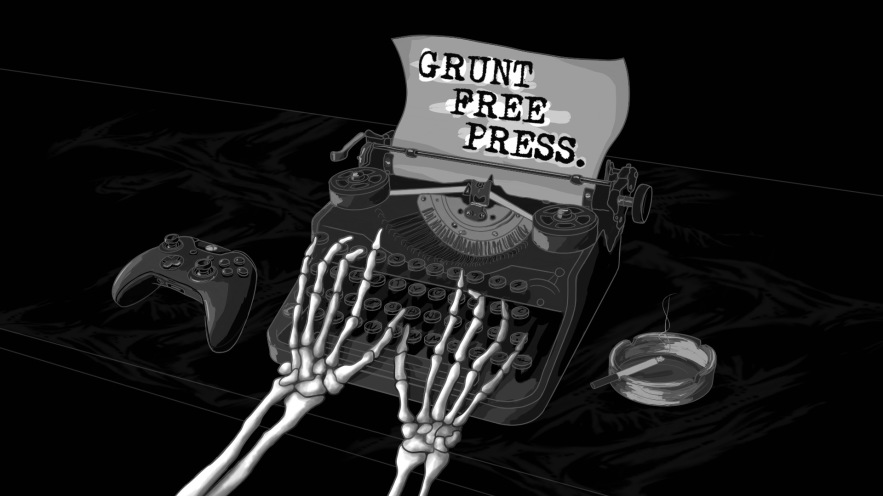Contra Review
They say there's no such thing as a perfect game. Once you start picking apart a title objectively there's bound to be issues that emerge preventing it from being awarded that technically unachievable adjective. Wether it's a few game breaking bugs, poor pacing, repetitive mechanics, or even a specific moment or two that doesn't mesh well with the rest of the experience, there are a handful of games that reach the cusp of greatness but remain as stepping stones for what is hopefully to come. Then there's Contra.
I often find myself contemplating what makes a game good, bad, or in the worst case scenario completely unmemorable. I have extremely limited and outdated programming knowledge; I started making a Friday the 13th text adventure for the Apple IIGS when I was twelve but had to abandon it when it got too big and buggy (maybe I can apply at Bethesda), and tried teaching myself C++ but gave up on that as well. Yet still there's a plethora of ideas rattling around my head, and as my experience as a gamer broadens I can't help looking where the industry stands today, where it came from, and where it's going.
One of the big issues that is sure to debated for years to come is difficulty in modern games and how that compares to classic or retro gaming. The general consensus is that today's gamer is coddled with games that are impossible to lose and the games of yesterday were machosistic and cryptic. While this is certainly a generalization it's hard to argue against. The bigger, more important focal point is a game's learning curve. Ideally just about anyone should be able to complete the early stages, the difficulty should gradually increase so that more dedication is required to advance, then the act of seeing a game through to end should be challenging, rewarding, and leave the player with a sense of pride and accomplishment. In other words every other game should model itself after Contra.
There's an emphasis now on dividing gamers into the "hardcore" and "casual", yet there's constant discussion about the definition of the terms. Do you need to log a certain amount of hours playing video games each week to get your Hardcore card? Do what consoles you own or genres you perfer make a difference? What about those who have only played one or two games but know them like the back of their hand? In other words: if someone plays Call of Duty and only Call of Duty eight hours a day for the rest of their lives, are they a hardcore Call of Duty player? Certainly. A hardcore gamer? That's debatable. Growing up it was much simpler to judge a gamer's worth - how far can you make it in Contra? Make it to the Waterfall stage and you're respected; make it to the Snow stage and you're pretty hardcore; beat the game and you're a golden god; if you can't make it past the Jungle you probably lied and you don't own an NES.
Even the September issue of Game Informer named Contra as the number two co-op game of all time, with a little blurb about it's difficulty:
Considered by many to be one of history's most difficult games, Contra is too grueling to tackle on your own.
I'd counter that with a quote from the prestigious gentleman who calls himself the Angry Video Game Nerd:
Contra is a pretty challenging game. I can think of plenty that are harder... I beat Contra before breakfast.
While co-op is another beast altogether where you need to rely on your partner to either keep up with or wait for you and coordinate your entire gameplan, playing solo is man vs. machine in it's purest form (just go with it). You have to combine your reaction time with memorization and pattern recognition while trying to keep your score as high as possible so you can earn extra lives in case of any snafus. Like many games of it's era Contra is an arcade port, yet it expertly dodges the pitfalls of many of it's brethren. Ninja Gaiden, Castlevania, and Batman are all considered classics, and as fun as they are to play I'm pretty sure they're impossible to beat. Other NES games can only be completed by using tricks, codes, or arcane knowledge that can realistically only be gained by using a strategy guide or FAQs. I've always taken the stance that once you need to go outside the actual game to progress, it has failed in it's inherent design. In Contra you shoot stuff. There's no screwing around. There's nothing hidden behind the waterfall, there are no warps or any secrets that will help you. When you reach the end you didn't cheat and glitch your way to beating an AI programmed to be cheap, it feels like you prevailed over a worthy opponent.
Another topic people like bringing up is the length of time it takes to complete a game, and wether that dictates the worth or quality of the game. I've heard comments about not buying a game unless it lasts forty hours, or has multiplayer, or they don't want to buy something that's too long because they don't have much time and don't want to start something they won't finish. There's no real answer to what is the perfect length for a game...but again there's Contra. I started when I was five on the NES and didn't finish until I was twenty five on the 360. In realtime it took me twenty years to beat. But when the Achievement popped up the description read: Full Assualt:Complete the game in under 12 minutes. That was the longest twelve minutes of my life. And every second of it spent in the game was bliss.
Storywise I think every game could learn alot from Contra as well. Just drop a shirtless guy out of a helicopter and let us loose. Throw some robots and aliens in there randomly and don't be afraid to steal from other sources as long as they're equally as awesome. I'm not sure if my love affair with the Aliens universe started with the actual movies, or could have very well been from seeing my cousin play Contra first. Either way they're forever interwined and it doesn't matter now. Even if you can't get through the game yourself, you can watch the Replay to experience the entire epic for yourself. It truly is gaming's answer to Citizen Kane.
And what an ending! As video game narratives become more mature and complex, it gets harder for writers to conclude a story in a satisfying manner. Looking back, NES games had the opposite problem. You hyped yourself up as the final boss went down and anxiously awaited what was sure to be a just reward for pouring hours into a notoriously difficult game, but were usually treated with a simple "The End" or "Thanks For Playing" if you were lucky. The lesson learned was supposed to be how the journey is the real reward or something similar, but more often than not you just felt ripped off. One of my favorite NES endings is for The Guardian Legend:
Damn straight I'm the greatest player. Every game should end with this exact screen. As great as this ending is, Contra takes things one step further. Yeah, the explosion is awesome and they cram some story in there about Red Falcon or something, but after the credits the game starts up again and you play from the beginning with your score saved and most likely less lives and continues than you did the first time. The perfect ending for the perfect game: more Contra.
Here you go: Contra in all it's glory with no Konami code BS:




